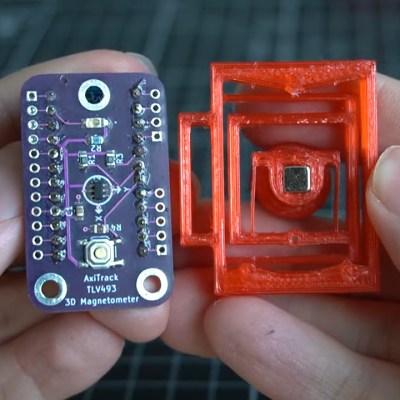This week, Jonathan Bennett, Doc Searls, and Jeff Massie talk about Deepseek, technical solutions to Terms of Service abuse, and more!
Continue reading “FLOSS Weekly Episode 818: I Don’t Care About The Roman Empire”
This week, Jonathan Bennett, Doc Searls, and Jeff Massie talk about Deepseek, technical solutions to Terms of Service abuse, and more!
Continue reading “FLOSS Weekly Episode 818: I Don’t Care About The Roman Empire”
This week, Hackaday’s Elliot Williams and Kristina Panos joined forces and Wonder-Twin rings to bring you the latest news, mystery sound, and of course, a big bunch of hacks from the previous week.
 First up in the news: Big boo to Bambu Labs, who have tried to clarify their new authentication scheme and probably only dug themselves in deeper with their customers.
First up in the news: Big boo to Bambu Labs, who have tried to clarify their new authentication scheme and probably only dug themselves in deeper with their customers.
On What’s That Sound, Kristina didn’t get close at all, but at least had a guess this time. Do know what it is? Let us know, and if you’re right and your number comes up, you can keep warm in a limited edition Hackaday Podcast t-shirt.
Then it’s on to the hacks and such beginning with a rather nice reverse-engineering of the Yamaha PRS-E433 keyboard, which led to a slice of Bad Apple playing on the tiny screen.
After that, we take a look at an NES musical instrument, how to make wires explode with energy, and a really cool space mouse that uses flexures. Finally, we talk about a piece of forgotten Internet history, and a whole bunch of keyboards.
Check out the links below if you want to follow along, and as always, tell us what you think about this episode in the comments!
Download in DRM-free MP3 and savor at your leisure.
Continue reading “Hackaday Podcast Episode 305: Caustic Clocks, Practice Bones, And Brick Layers”
This week, Jonathan Bennett and Dan Lynch chat with Stefano Zacchiroli about Debian and Software Heritage!
Continue reading “FLOSS Weekly Episode 817: Incompatible With Reality”
It’s podcast time again, and this week Dan sat down with Elliot for a look back at all the cool hacks we’ve written about. We started off talking about Hackaday Europe, which is coming up in March — seems unlikely that it’s just around the corner, but there it is. There’s also good news: the Hack Chat is back, and we started things off with a bang as Eben Upton stopped by to talk all things Pi. Separately, we talked about fault injection attacks, including how to find the hidden cup of 0xC0FFEE in an RP2350.
We saw a very cool piece of LED jewelry that does a fluid simulation, a direct conversion radio that’s all laid out in front of you, and the scrunchiest mechanical digital clock you’ll ever see. We saw blinkenlights for blinkenlights’ sake, all the ways to put threads in your prints, and how to ditch to coax and wire up your antennas with Cat 6 cable. Plus, it’s an Al Williams twofer in the Can’t-Miss Articles, with a look back at life before GPS and how you can tune into digital ham radio, no radio required.
This week, Jonathan Bennett and Aaron Newcomb chat with Simon Phipps and Stefano Maffulli about Open Source AI. Why did we need a new definition? Has it been controversial? And why did OSI step into this particular conversation?
As the holiday party season fades away into memory and we get into the swing of the new year, Elliot Williams is joined on the Hackaday Podcast by Jenny List for a roundup of what’s cool in the world of Hackaday. In the news this week, who read the small print and noticed that Benchy has a non-commercial licence? As the takedown notices for Benchy derivatives fly around, we muse about the different interpretations of open source, and remind listeners to pay attention when they choose how to release their work.
The week gave us enough hacks to get our teeth into, with Elliot descending into the rabbit hole of switch debouncing, and Jenny waxing lyrical over a crystal oscillator. Adding self-driving capability to a 30-year-old Volvo caught our attention too, as did the intriguing Cheap Yellow Display, an ESP32 module that has (almost) everything. Meanwhile in the quick hacks, a chess engine written for a processor architecture implemented entirely in regular expressions impressed us a lot, as did the feat of sending TOSLINK across London over commercial fibre networks. Enjoy the episode, and see you again next week!
This week, Jonathan Bennett and Randal chat with Matija Šuklje about Open Source and the Law! How do Open Source projects handle liability, what should a Contributor License Agreement (CLA) look like, and where can an individual or project turn for legal help?
Continue reading “FLOSS Weekly Episode 815: You Win Some, You Lose Some”